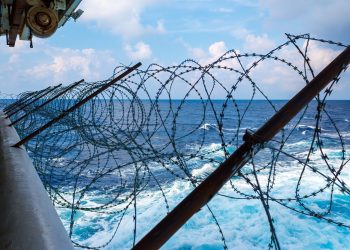After Saturday’s a surprise attack against Israel by the Hamas militant group, the conflict that wrecks the area continues to raise concerns for the implications of security and trade in the area, as well as the spread of a wider conflict.
Security risk and diversion
The past few days, widespread concern has risen with P&I Clubs and registries have warned vessels to avoid the area. As a result, several diversions have taken place. According to Reuters, the Israeli army’s homefront command reposted on Monday its standing guidance for being prepared in times of emergency, which includes families collecting water and food for up to three days, as well as medicine and flashlights.
Help from shipping companies
Reuters also reports that Israel’s top container shipping carrier, Zim, has announced that its vessels will be used for “national needs” by transferring cargo from anywhere in the world to Israel, according to the Ministry of Defense and the Israeli government.
Furthermore, Danish container shipping group A.P. Moller Maersk said on Tuesday that continues to accept container bookings to and from the country, according to Reuters.
Fear of expanding conflict
Reuters also mentioned the concerning fact that an advisory by INTERTANKO warned its members this week that after the Hamas attacks, tensions are expected to rise in the broader Middle East Gulf and Gulf of Oman, with heightened risks for shipping connected to Israel.
However, according to Wall Street Journal, U.S. officials say they haven’t seen evidence of Tehran’s involvement. In an interview with CNN that aired Sunday, Secretary of State Antony Blinken said that they have not yet seen evidence that Iran directed or was behind this particular attack, but there is certainly a long relationship.
In any case, the discovery of Iran’s involvement in the attacks could seriously escalate the conflict, further hindering conflict, security risk and, as a result, the transfer of goods.

































































